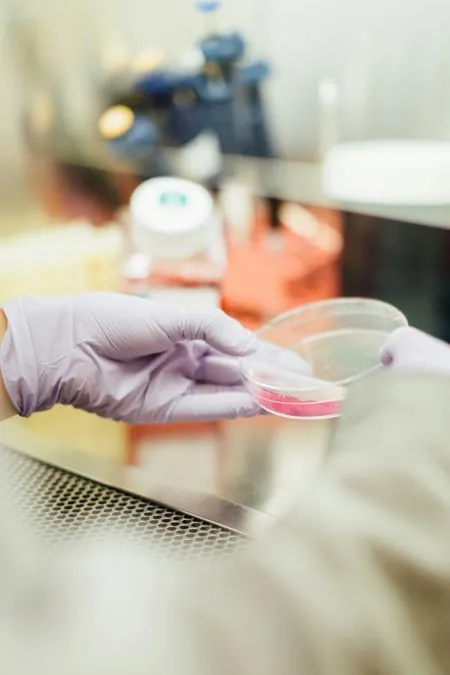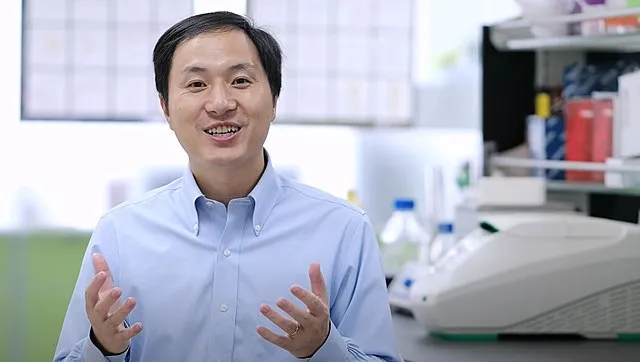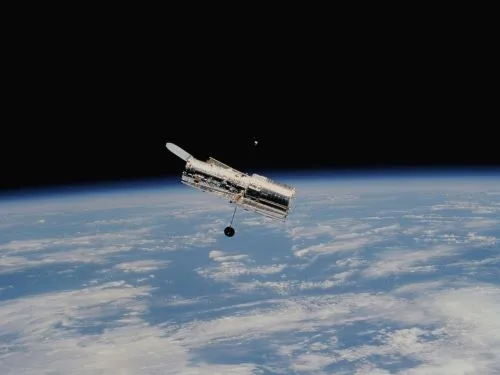Science and technology have advanced by leaps and bounds in recent years, overcoming barriers that once seemed impossible. However, ethical questions arise about how far we should allow science to advance. In some cases, we can say that science has overstepped the mark, and it is important to analyze these cases to better understand the limits and implications of scientific research.

Photo by Drew Hays at Unsplash.
One case that has generated controversy and debate about whether science has gone too far is gene editing in humans. In 2018, Chinese researcher He Jiankui announced that he had gene-edited two human embryos to make them resistant to HIV. This news caused strong condemnation from the scientific and ethical community, as gene editing in humans raises important questions about the safety, fairness, and ethical limits of genetic manipulation.

Throughout history, animal experiments have been conducted in order to advance medicine and scientific research. However, many of these experiments have been questioned for their cruelty and lack of ethics, raising the question of whether we really need to resort to animal experimentation to advance science.

Photo by National Library of Medicine at Unsplash.
On the other hand, there are fields where more science is needed but its impact is not really felt, such as in environmental conservation. Despite advances in research on climate change and environmental degradation, many people do not perceive the importance of these studies and do not take action to address environmental problems. Greater public awareness and action is needed to address the environmental challenges we face, and science can play a crucial role in this regard.

Photo by Markus Spiske at Unsplash.
Key figures such as Albert Einstein, Marie Curie and Charles Darwin have contributed significantly to the advancement of science and technology. However, it is also important to highlight lesser known but equally influential figures, such as Rachel Carson, author of Silent Spring in 1962 who played a key role in the environmental movement as she contributed to the launch of modern environmental awareness.

Although science has gone too far, it is important to consider not only the negative aspects, such as animal experimentation or gene editing in humans, but also the benefits it has brought to society, such as the advancement of medicine, technology and space exploration.

Science and technology are powerful tools that can be used to improve people's lives and advance human knowledge. However, it is important to set ethical boundaries and consider the potential implications of our scientific actions. As we move into the future, it is crucial to reflect on where science has gone too far and where more research is needed to address the challenges we face as a society.
Again greetings to this great community for the week, this is my second participation, the topic to be developed being:
Science is going too far: Technology is evolving every day and science is breaking new records on a regular basis. Not all of them are ethical and there are cases where we can say that science has gone too far. Can you name a case? In your opinion, where has science gone too far? And also, name a field where more science is needed but not really felt.
Thank you for reading my publication, a pleasure and a pleasure to read you.
The separator is free to use and has been provided by @onexel, Link Here.

La ciencia y la tecnología han avanzado a pasos agigantados en los últimos años, superando barreras que antes parecían imposibles. Sin embargo, surgen preguntas éticas sobre hasta dónde deberíamos permitir que la ciencia avance. En algunos casos, podemos decir que la ciencia se ha sobrepasado, y es importante analizar estos casos para comprender mejor los límites y las implicaciones de la investigación científica.

Un caso que ha generado controversia y debate sobre si la ciencia ha ido demasiado lejos es la edición genética en seres humanos. En 2018, el investigador chino He Jiankui anunció que había editado genéticamente dos embriones humanos para hacerlos resistentes al VIH. Esta noticia causó una fuerte condena por parte de la comunidad científica y ética, ya que la edición genética en seres humanos plantea importantes preguntas sobre la seguridad, la equidad y los límites éticos de la manipulación genética.

A lo largo de la historia, se han llevado a cabo experimentos en animales con el fin de avanzar en la medicina y la investigación científica. Sin embargo, muchos de estos experimentos han sido cuestionados por su crueldad y falta de ética, lo que plantea la pregunta de si realmente necesitamos recurrir a la experimentación animal para avanzar en la ciencia.

Foto de National Library of Medicine en Unsplash
Por otro lado, hay campos en los que se necesita más ciencia pero no se siente realmente su impacto, como en la conservación del medio ambiente. A pesar de los avances en la investigación sobre el cambio climático y la degradación ambiental, muchas personas no perciben la importancia de estos estudios y no toman medidas para abordar los problemas ambientales. Se necesita una mayor conciencia pública y acción para abordar los desafíos ambientales que enfrentamos, y la ciencia puede desempeñar un papel crucial en este sentido.

Foto de Markus Spiske en Unsplash
Figuras clave como Albert Einstein, Marie Curie y Charles Darwin han contribuido de manera significativa al avance de la ciencia y la tecnología. Sin embargo, también es importante destacar a figuras menos conocidas pero igualmente influyentes, como Rachel Carson, autora de Primavera silenciosa en 1962 que desempeñó un papel clave en el movimiento ambientalista ya que contribuyó a la puesta en marcha de la moderna conciencia ambiental.

A pesar de que la ciencia ha ido demasiado lejos, es importante considerar no solo los aspectos negativos, como la experimentación animal o la edición genética en humanos, sino también los beneficios que la misma ha aportado a la sociedad, como el avance de la medicina, la tecnología y la exploración espacial.

La ciencia y la tecnología son herramientas poderosas que pueden utilizarse para mejorar la vida de las personas y avanzar en el conocimiento humano. Sin embargo, es importante establecer límites éticos y considerar las posibles implicaciones de nuestras acciones científicas. A medida que avanzamos hacia el futuro, es crucial reflexionar sobre dónde ha ido demasiado lejos la ciencia y dónde se necesita más investigación para abordar los desafíos que enfrentamos como sociedad.
Nuevamente saludo a esta gran comunidad en la semana, esta es mi segunda participación, siendo el tema a desarrollar:
La ciencia va demasiado lejos: La tecnología evoluciona cada día y la ciencia bate nuevos récords con regularidad. No todos son éticos y hay casos en los que podemos decir que la ciencia ha ido demasiado lejos. ¿Puede nombrar un caso? En su opinión, ¿dónde ha ido demasiado lejos la ciencia? Y también, nombre un campo en el que se necesite más ciencia pero no se sienta realmente.
Gracias por leer mi publicación, un placer y un gusto leerlos.
El separador es de uso gratuito y ha sido proporcionado por @onexel, Enlace Aquí.